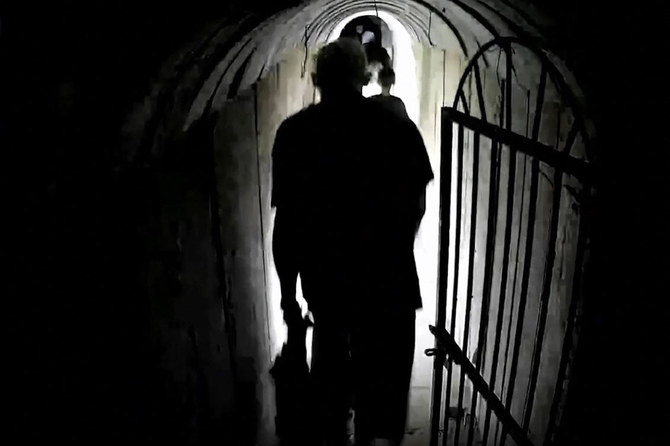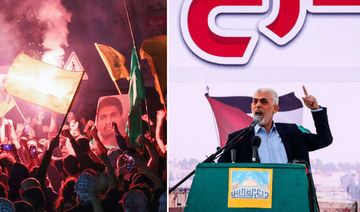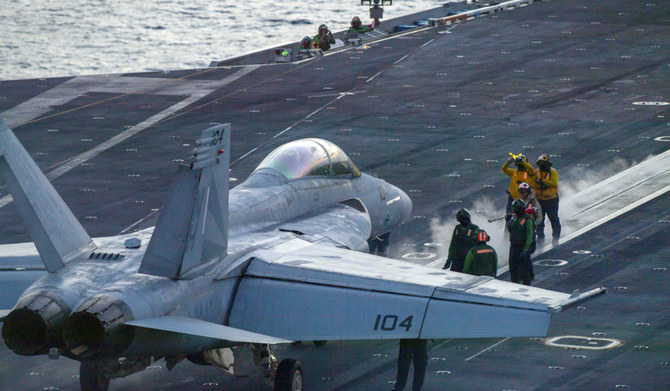JERUSALEM: Israel’s army Tuesday released a video it said was of Hamas’s chief in Gaza, Yahya Sinwar, filmed on October 10 with his family members in a tunnel in the Palestinian territory.
The black and white images showing a man said to be Sinwar being led through a tunnel together with a woman and three children are said to be the first of him since the Israel-Hamas war broke out.
Israel accuses Sinwar of masterminding the unprecedented October 7 attack on Israel that triggered the conflict, now in its fifth month.
Army spokesman Daniel Hagari said Israeli troops had uncovered the video in a security camera during an operation in a tunnel, without elaborating on the location.
“The footage shows leader of Hamas and mass murderer, Yahya Sinwar, fleeing with his children and one of his wives,” he told a briefing.
“This is how he escaped with his family from an underground tunnel to a secured complex he had built in advance,” Hagari said.
“This video of Sinwar is the result of our hunt. This hunt will not stop until we have captured him dead or alive.”
AFP was unable to independently verify the authenticity of the video.
It was unclear from the footage where the tunnel was located, but in recent weeks the Israeli military has pounded Khan Yunis, southern Gaza’s main city and Sinwar’s hometown.
Hagari said the video had been filmed on October 10, three days after Hamas carried out an attack on Israel that resulted in the deaths of about 1,160 people, mostly civilians, according to an AFP tally based on Israeli figures.
In response, Israel vowed to eliminate Hamas and launched a military campaign in Gaza that has killed at least 28,473 people, mostly women and children, according to the health ministry in the Hamas-run territory.
Earlier this month, Israeli Defense Minister Yoav Gallant said Sinwar was “moving from hideout to hideout” and was no longer leading the group’s military operations in Gaza.
“He has now become a terrorist on the run from being the leader of Hamas” in the Palestinian territory, Gallant said, without elaborating on Sinwar’s presumed current location.
Sinwar joined Hamas when Sheikh Ahmad Yassin founded the group in 1987, around the start of the first Palestinian uprising, or intifada, against Israeli occupation.
The ascetic militant, known for his secrecy, has not been seen since October 7.
Since then, Israeli military spokesman Richard Hecht called Sinwar the “face of evil” and declared him a “dead man walking.”
But Israeli forces in Gaza have failed to locate any of Hamas’s top leaders.
Israel army shows video it says is of Hamas’s Sinwar in tunnel
https://arab.news/cpwqa
Israel army shows video it says is of Hamas’s Sinwar in tunnel

- Army spokesman Daniel Hagari said Israeli troops had uncovered the video in a security camera during an operation in a tunnel
- “This video of Sinwar is the result of our hunt. This hunt will not stop until we have captured him dead or alive”




























